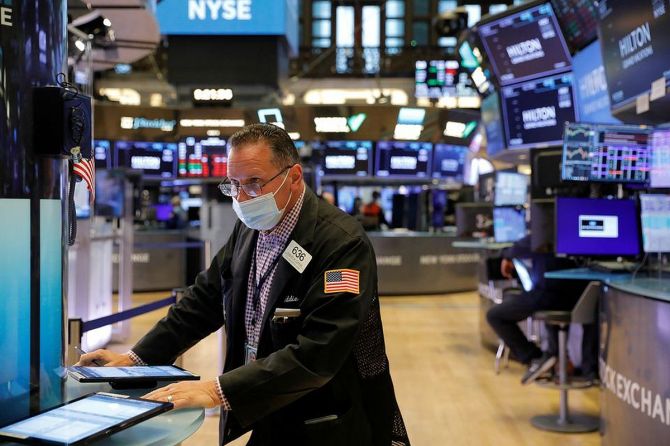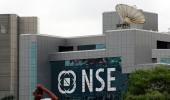Trading in US stock receipts will be conducted over two calendar days beginning 20:00 pm on day one and extending up to 2.30 pm the next day.

From March 3, investors in India will be able to trade in select US stocks through the NSE International Exchange (NSE IFSC), a wholly owned subsidiary of the National Stock Exchange (NSE).
Investors can invest in NSE IFSC receipts on US stocks, which will be in the form of unsponsored depository receipts (DRs).
For a start, this will include DRs of 50 US stocks such as Apple, Alphabet, Amazon, Tesla, Microsoft, Morgan Stanley, Nike, P&G, Coca-Cola, and Exxon Mobil.
Indian retail investors will be able to transact on the NSE IFSC platform under the Liberalised Remittance Scheme (LRS) limits prescribed by the Reserve Bank of India (RBI), which currently stand at $250,000 per year.
Resident investors will have to open a demat account at the IFSC and the stock receipts will be considered foreign assets for filing income tax returns.
Short-term capital gains will be taxed at the slab rate while long-term capital gains will be at 20 per cent with indexation.
“The business model offered by NSE IFSC will not only provide an additional investment opportunity to the Indian investors but also make the entire process of investment easy and at a low cost.
"Investors will be provided an option to trade in fractional quantity/value when compared to the underlying shares traded in US markets.
"The proposed framework will make US stocks affordable to Indian retail investors,” said a note put out by the NSE last year.
Investing in global stocks has gained currency in the past two years in the backdrop of a decades-long bull run enjoyed by US equities and the need to avoid a single-country risk.
Currently, Indian investors buy US stocks through designated online brokers who have permission from Indian and US regulators to offer such services.
“It is the right time to get such an innovative product, especially from an Indian perspective, as we have seen over a period that Indians have started investing in global stocks,” said Tapan Ray, managing director and Group chief executive officer, GIFT City.
Yashesh Ashar, partner, Bhuta Shah & Co, said: “This will help integrate Indian capital markets, specifically the IFSC, with the global economy and help recognise the potential of the IFSC as an emerging international financial hub. Success with this sandbox experiment will hopefully pave the way for more innovation at the IFSC.”
A few niggling issues remain, however.
For Indian tax purposes, it is not clear as to whether DRs can be treated akin to shares.
This could affect taxation of profits made from sales of DRs.
For example, if a person resident in India invests directly in US stocks and sells them after two years, then, for Indian tax purposes, the profits from such sale will be characterised as “long-term capital gains”.
However, if such a person invests in US stocks through DRs, then, at present, there is no clarity as to whether such period of holding of two years can be considered for determining the character of profits for Indian tax purposes, or not, given that this period of two years is applicable only in the case of shares of companies not listed on a recognised stock exchange in India.
“From a regulatory standpoint, people resident in India cannot keep funds idle in their IFSC bank account as any funds lying idle in their IFSC bank account for up to 15 days from the date of its receipt into the account, needs to be repatriated to the domestic INR account.
"Such a policy, coupled with lack of clarity on taxation of profits on sale of DRs, could discourage people resident in India to invest in DRs to be listed on the NSE IFSC platform,” said Dhaval Jariwala, partner, PNDJ & Associates.
Trading in US stock receipts will be conducted over two calendar days beginning 20:00 pm on day one and extending up to 2.30 pm the next day.
Such a trading cycle will be considered one single business day.
There will be no fixed price band applicable for these contracts.
However, the exchange will have a mechanism of dynamic price bands, which prevent acceptance of orders for execution that are placed beyond the price limits set by the exchange.
In the event of a market trend in either direction, the dynamic price band will be relaxed in the direction of the price movement during the day.
The dynamic price band will be set at 10 per cent of the base price.












 © 2025
© 2025